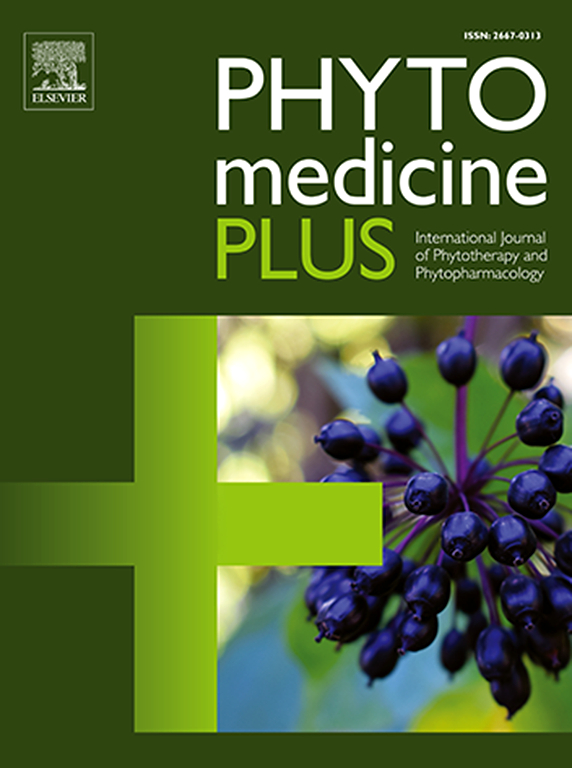Advancing global herbal medicine: Enhancing herb quality through innovative strategies explored in Hong Kong - An international hub
Q3 Pharmacology, Toxicology and Pharmaceutics
引用次数: 0
Abstract
Background
The Hong Kong Department of Health has been inspecting numerous medicinal herbs circulating in the market every year. Herbs have been identified recurrently to have problems such as over-limit aflatoxins and toxic alkaloids, and the distributors had to recall the problematic herbs. Despite the negative business consequences, the problems persisted.
Purpose
This study identified the contributors to such a phenomenon, particularly the reasons for unchanging supply chain practices in Hong Kong.
Study Design
We interviewed 16 stakeholders from the Chinese herbal medicine industry to investigate the reasons behind sub-optimal supply chain practices. The interviews were analysed using a coding framework developed by Pisani and colleagues in 2019 to analyse national risks for medicines of sub-optimal quality. The survey's purpose was to identify risks in market dynamics and policies associated with sub-standard and adulterated medicinal herbs in Hong Kong.
Results
Problems with herbs’ quality in Hong Kong are attributed to harvesting, collecting, processing and packaging errors as well as storage errors. Furthermore, batch differences contributed to quality issues. The results revealed the lack of expertise and motivation in the Chinese medicine industry in terms of self-surveillance and the eradication of such errors. Moreover, it was found that chemical inspection tests were generally avoided due to cost and time concerns.
Conclusion
The current situation is not conducive to consumer rights and public health protection, and supply chain practices should be improved to provide high-quality herbs to the community consistently. We propose establishing a centralised system to purchase herbs. A track-and-trace electronic system can be set up for efficient tracing of the sources and time of transactions such as herb purchase and dispensing. A registration system of Chinese pharmacists is recommended to ensure professionalism and regulatory responsibility, protect the quality of prescriptions, ensure the safe use of herbs and protect public health. These strategies can facilitate the internationalisation of Hong Kong herbs by achieving high standards of quality. Since Hong Kong is an international city, the implementation of the strategies in this proposal can serve as a demonstration of ways to improve the quality of herbs on a global scale.
推动全球草药发展:在香港这个国际中心探索创新策略,提升草药品质
背景香港卫生署每年都会检查市面上流通的大量中草药。草药经常被发现有黄曲霉毒素和有毒生物碱超标等问题,经销商不得不召回有问题的草药。尽管有负面的业务后果,但问题仍然存在。目的本研究找出造成这一现象的原因,特别是香港的供应链实践一成不变的原因。研究设计我们采访了16位来自中草药行业的利益相关者,以调查次优供应链实践背后的原因。使用Pisani及其同事于2019年开发的编码框架对访谈进行了分析,以分析国家对次优质量药物的风险。是次调查的目的,是找出香港市场动态和政策中与劣质及掺假药材有关的风险。结果香港药材质量问题主要是由于采收、收集、加工和包装错误以及储存错误。此外,批次差异导致了质量问题。结果显示,在自我监督和消除此类错误方面,中药行业缺乏专业知识和动力。此外,人们还发现,由于成本和时间方面的考虑,一般都避免进行化学检验试验。结论现状不利于消费者权益和公众健康保护,应完善供应链实践,持续向社会提供优质药材。我们建议建立一个集中采购药材的制度。可以建立跟踪电子系统,以便有效地跟踪交易的来源和时间,例如草药购买和配药。建议建立中医注册制度,以确保专业精神和监管责任,保障处方质量,确保草药使用安全,保护公众健康。这些策略可以促进香港草药的国际化,达到高品质的标准。由于香港是一个国际城市,本建议中的策略的实施可以作为在全球范围内提高草药质量的示范。
本文章由计算机程序翻译,如有差异,请以英文原文为准。
求助全文
约1分钟内获得全文
求助全文
来源期刊

Phytomedicine Plus
Medicine-Complementary and Alternative Medicine
CiteScore
3.70
自引率
0.00%
发文量
178
审稿时长
81 days
期刊介绍:
 求助内容:
求助内容: 应助结果提醒方式:
应助结果提醒方式:


